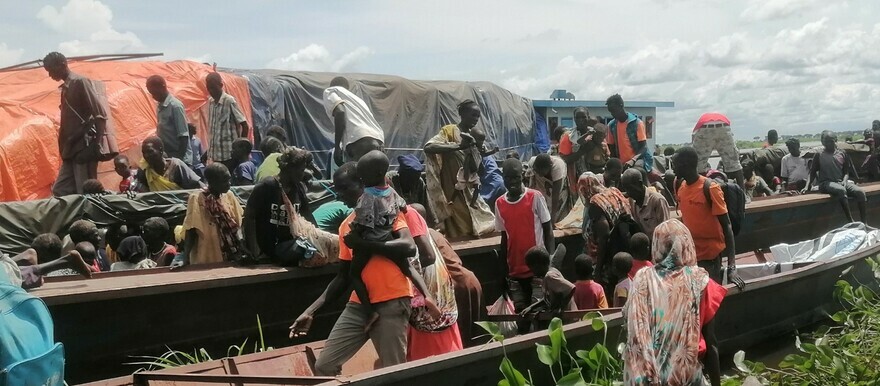Violence in South Sudan’s Upper Nile State has displaced at least 20,000 people since August, some of whom are hiding in swamps, a United Nations agency said on Wednesday.
Fighting erupted in the village of Tonga in Upper Nile on 15 August 2022. Violence has since spread further in Upper Nile, northern parts of Jonglei and Unity states. It is currently advancing in Upper Nile’s Fashoda County and is threatening the town of Kodok.
The exact number of people killed in the ongoing violence remains unknown.
In a statement extended to Radio Tamazuj, the UN Refugee Agency (UNHCR) said at least 3,000 people have already fled to neighbouring Sudan, further intensifying South Sudan’s refugee crisis, the largest in Africa.
“Desperation is rising, and more people are fleeing as conflict intensifies,” said UNHCR’s Representative in South Sudan, Arafat Jamal. “Civilians are under attack in this ruthless conflict; we must ensure their protection.”
The UN agency further said women and children, and others at high risk make up the majority of those displaced and that some older people or those with disabilities have been unable to flee, compelled to hide in bushes and along the White Nile River during attacks.
“Fleeing civilians are visibly traumatized and report killings, injuries, gender-based violence, abductions, extortion, looting and burning of properties,” the statement read. “Many have lost their homes and been separated from their families.”
Last month, UNHCR’s Jamal led the first inter-agency visit to the village of Adidiang since it was attacked on 7 September, with some 4,000 civilians sheltering there forced to flee to Malakal and its site for internally displaced people under the protection of the United Nations Mission in South Sudan (UNMISS).
The refugee agency said the site was originally set up nearly 10 years ago to host up to 12,000 internally displaced people but some 37,000 are accommodated there – already overcrowded before the recent arrivals.
“In both Adidiang and Diel, we witnessed the aftermath of raw violence,” said Jamal. “It was heartbreaking to see a clear pattern of attacks on civilians and their homes.”
UNHCR says that together with other UN agencies and NGO partners, they have scaled up response to provide life-saving support to the most vulnerable, including in hard-to-reach areas with shelter, relief items, protection services, cash, and other assistance.
“By using boats to expand our mobile response capacity, UNHCR can now reach people faster and more easily, including in remote and hard-to-reach areas,” the statement said. “Despite UNHCR’s support for efforts to de-escalate tensions and promote peace, the situation continues to deteriorate.”




